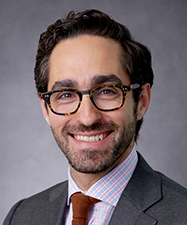Lung cancer remains the most commonly diagnosed – and most lethal – cancer in the United States with greater than 220,000 cases diagnosed in 2020.
In stage 4 lung cancer, the cancer has spread (metastasized) to both lungs, the area around the lungs, and/or distant organs. According to the National Cancer Institute, 57% of lung cancer is diagnosed at this late stage. When cancer reaches this stage it cannot be cured, but in some cases the patient’s life can be prolonged and quality of life can be improved.
Lung cancer, like pancreatic, ovarian, and some other cancers, is often diagnosed after it has spread. Symptoms of lung cancer usually do not appear until the disease is already at an advanced stage. Even when lung cancer does cause symptoms, many people may mistake them for other problems, such as an infection or long-term effects from smoking. This may delay the diagnosis.
While many stage 4 lung cancers cannot be cured, cancer experts do have treatments that in some cases may extend a patient’s life and improve their quality of life. The multidisciplinary group of physicians, nurses, and supportive care professionals who make up the MD Anderson Cancer Center at Cooper Lung Cancer Center provide novel and powerful treatment options including advanced chemo- and immune-therapies, safe and effective radiation therapy including MR-guided radiation treatment, and even surgery for certain stage 4 lung cancers. We use minimally invasive techniques such as robotics to aid in complex diagnoses, and offer minimally invasive surgery options to our patients.
For patients diagnosed with early stage lung cancer, cure is possible and attainable. In the U.S. 5-year survival rates continue to climb each year thanks in large part to better access and promotion of lung cancer screening and early detection of lung cancers.
I urge everyone to listen to your body and contact your physician if you are experiencing symptoms such as cough (often with blood), chest pain, wheezing, or weight loss.
If you are a heavy smoker and have been smoking for many years, please talk to your doctor about a lung cancer screening. It is painless, requires no preparation, and is covered by most insurance companies. And if you don’t have insurance, we may be able to help with free screening services.
David D. Shersher, MD, is a Thoracic, Lung and Esophageal Surgeon and Co-Director of the Aerodigestive Program at MD Anderson Cancer Center at Cooper.

